|
Once upon a time, in the spring of April 2023, a group of three Estonians embarked on a wondrous adventure to Bosnia and Herzegovina. Their quest? To polish their storytelling skills and uncover the magic hidden within the art of narrative. Little did they know that their journey would be filled with enchantment and discovery.
As they arrived in the picturesque land of Bosnia, they found themselves surrounded by a diverse group of fellow storytellers from Malta, Serbia, Hungary, Spain, Poland, Ukraine, and Bulgaria. Each participant brought a unique talent and perspective to the gathering. Singers, poets, and even film artists united under the shared passion for storytelling. During their time together, they delved into the intricacies of stories. They read the same tales but discovered that each person interpreted them in a different way. Through thought-provoking exercises and discussions, they unraveled the secrets of storytelling and shared their insights with one another. Yet, their journey held more challenges and revelations. Every day, they faced the task of honing their public speaking skills. They were taught to immerse themselves fully in the moment, allowing their stories to flow from the depths of their souls. They performed their tales before an audience of over 30 people, with emotions ranging from nerves to exhilaration, from tears to impassioned speeches. Through these shared experiences, their stories wove a bond, transforming them into a united family, akin to the tales of ancient Greece. One particular day in Sarajevo stands out as a highlight of their adventure. The day began with the group collaborating to create a story together, although it remained somewhat unfinished. Drawing inspiration from the movie "Aliens" and the ideas shared the previous evening, they experimented with in-camera tricks to enhance their narrative. The presentations that followed were nothing short of inspiring, leaving their audience spellbound. As their time in Bosnia drew to a close, they engaged in a reflective exercise, performing a SWOT analysis of themselves both individually and with the support of their newfound friends. They discovered that there were countless ways to connect the dots and realized that their thinking had been confined within the boundaries of boxes, both big and small. With hearts full of gratitude and memories to treasure, the Estonians bid farewell to Bosnia and Herzegovina. They departed as transformed storytellers, armed with newfound knowledge, inspiration, and an expanded perception of the world. Their journey had revealed that stories possess the power to unite people across borders, cultures, and backgrounds, leaving an indelible mark on the tapestry of their lives. And so, their fairytale adventure came to a close, but the magic of storytelling would forever guide their paths. Yours Truly Hanna-Loora Bobrov, Anton Neidre, Kadi Remann
0 Comments
Osalejad olid Eestist, Bulgaariast, Prantsusmaalt, Gruusiast, Poolast, Rumeeniast, Hispaaniast ja Türgist ning projekt toimus ühes pigem vähetuntud Hispaania linnas Kataloonia piirkonnas nimega Lleida, kus vaatamisväärsusi võrreldes Barcelonaga oli vähem, kuid linn oli omamoodi huvitav ja kindlasti leidus seal ka silmailu.
Esimesel õhtul saabusime Lleidasse ning hilise kellaaja tõttu suundusime kõik koos kohe õhtust sööma ühte kohalikku söögikohta. Seal tutvusime kõik omavahel ning järgmisel hommikul hakkasime projektiga pihta. Olid kolm väga sisukat ja tihedat päeva, kus üheskoos arutlesime, kuidas saame kaasata erinevaid vähemate võimalustega noori, et projektidesse saamine ja nende edukas läbimine ei jääks erivajaduste, vähemus olemise ega muude erisuste taha. Grupiaruteludes ning töötubades tulime erinevatele ideedele ja mõtetele, kuidas võõrustajaorganisatsioon ja saatja organisatsioon omavahel koostöös ka keerulisematele ülesannetele lahendused leiavad. Ühel päeval oli meil ka videokõnes Ukrainast pärit Maria, kes oma vabatahtlikutöö tegi koos oma pisikese pojaga. Kõik raskused on ületatavad. Viimasel päeval käisime Tarregas, kus asub suur intellektipuudega inimestega tegelev Associacio Alba, kus on suur kompleks, kus nad elavad, tegelevad igapäevatoimetustega, saavad seal ka töötada (pesuköögis ning neil on oma kuulus küpsisetehas, mille küpsises on üle Hispaania tuntud ning ka seal asuvas restoranis). Nii küpsised kui ka kogu toit oli seal lihtsalt imemaitsev. Saadud tulust elatab organisatsioon oma tegevust. Seal keskuses on läbi aastate käinud väga paljud vabatahtlikud (Erasmus + projektidega), sel hetkel kui meie seda külastasime, oli üks Itaalia neiu seal mõned kuud olnud ja väga armas oli näha, kuidas elanikud on ta väga omaks võtnud, tahtsid muudkui kallistada teda. Päevad möödusid eriti kiiresti ning lahkumise päev jõudis ka eriliselt kiiresti kohale. Kõikide osalejate arust oli see hetk vaid viivuks ning me oleks pidanud projekti kohe nullist uuesti tegema. :D Project was organized by Núcleo de Inclusão, in the city of Guimarães, Portugal, on the topic of Basics of communication. Participants dove into the discussion - what is communication? We communicate every day and yet we do not really think about it, at least we don't think about it in a way many other people do - blind, deaf, people with speech impairment, autistic people or people who have other struggles in their life, that make communication harder. Yes, we all know that people need to be more inclusive, but how can we really include people when we don't know about their struggles. Well, this is when this project showed us how, and told us how we can help to better include different people. This project was five days of trying to understand and learn about different ways that basic communication is used and how we can perfect it, so no one feels left out, or otherwise left with a feeling of being a weight on society's shoulders. Professionals from their areas came to show and talk about how and what devices, materials or things they use to help people communicate with each other. People who, for example, were autistic themselves talked about their experiences that sometimes are labeled as "taboo" or topics that people wish not to talk about. Everyone opened up as they wanted to know more about the given topic, or they just wanted to share their ideas or questions. Yet communication is far more than just the idea of "basic communication". Participants also had workshops in the field of advertising - how it works, what are some good examples and the meaning behind the given advertisements. What message and how can we send a message through a picture or video, and how it then affects us. People showed each other different campaigns from their countries and talked about the deeper meanings behind the campaigns and advertisements. Working with these topics with people across Europe was very eye opening, as it only human, that if you grow up in one country, study in that given country and also work in that one country, that it's not easy to get outside perspective and learn how people are doing those exact things in different countries, but at the same time, they do those exact things differently. Again, what connects us? It's the basics of communication, that connects us, the basic human interactions - as humans we want to talk to one and another, we want to discover and learn new things, and with this project that Núcleo de Inclusão organized in Guimarães, Portugal, people had the chance to try and overcome some language barriers and connect with each other, through the basic communication techniques. Of Course every project has it's fun side, so did this. People from 10 different countries spent their evenings dining outside and going on a walks in the city, to share their ideas and expand their horizons. Fierce table football battles were fought, and let's just say that Italians and Spanish people might not always be the best at football... Also as this project was about communication, it turned out some people felt more connected with some people than others, and made connections that might even last for a lifetime - while writing this, the author can confirm that he is traveling out of country to meet with people and continue sharing the ideas, as it felt that projects like these can teach everyone something new and also teach everyone something about other people. The trip for Estonian team, which consisted of Nora, Raimo, Mia, Sten, Kaspar, Hugo and Viktoria, started on March 30th, when we headed to the airport to catch a flight to Stockholm. For Raimo, it was the first time flying on a plane and he was quite nervous at first, but ended up really liking flying. At Stockholm, we spent the night at the airport trying to get some sleep before our next flight to Thessaloniki.
We arrived to Thessaloniki at 10:20 and for Estonians it was strangely warm at first. We took a bus to the city centre and headed to our hostels and spent a day eating amazing food and exploring the town. The next day, we took a bus to Xanthi, where the project took place. The bus trip was three hours long and during the ride we saw amazing views of northern Greece. We arrived to Xanthi in the evening and met up with other people from the project. Then we had dinner and went on a walk around the town. The first day of the actual project started at 10 AM and we started off with icebreaking activities to get to know eachother. We played a few name games and went around the town to complete some challenges. In the evening, we discussed our expectations, fears and contributions for the project. The following days were filled with more exciting activities and adventures. We had insightful discussions, took part in fun games, and attended workshops that helped us learn new skills about employment. We even had the chance to experience other cultures during the cultural evening and try snacks and sweets from other countries. As the days went by, we grew closer as a team and made unforgettable memories together. But as they say, all good things must come to an end. So, we packed our bags and said goodbye to Xanthi, promising to stay in touch and keep the memories alive. Kaspar Saabumise päeval Dilijani oli ilm ilus ja vaba aega küllaga. Kuna mõned Armeeniasse tulnud noorsootöötajad olid tuttavaks saanud eelmise aasta oktoobrikuus toimunud õppevisiidil Gruusiasse, võeti ette mitmetunnine matk Dilijani linna ja juttu jätkus kauemaks. Seejuures õpiti, et Armeenias ei heideta ajalugu silma alt ära, vaid eksponeeritakse seda omal moel. Dilijani kohaliku muuseumi tagahoovist võib leida nt Lenin näoga reljeefi.
Järgmisel päeval toimus põhjalikum tutvumine, osalejaid oli 14st riigist. Huvitav viis oli saata osalejad meeskondadena Dilijani linna peale orienteeruma ülesannetega, milledest mitmed baseerusid suhtlusel kohalikega. Paraku - suhtlemine kohalikega õnnestus enamasti paremini vene kui inglise keeles :) Ja õhtu lõpetas loomulikult kultuuriöö sündmus, kus sai maitsta erinevaid sööke- jooke, tantsida ja mängida erinevate rahvuste ringmänge. Esimese õppevisiitide päeva hommik algas lühikese projekti käsitleva teema sissejuhatusega, mis jätkus iga riigi ettekandega noorsootöö situatsiooni nii seadusliku kui MTÜ tasandil. Eestis tundub olukord olema hea ja kvaliteetne, kuna Eestis saab noorsootööd õppida kolmes kõrgemat haridust andvas õppeasutuses. Erinevalt osadest riikidest on meil tunnustatud noorsootöö ja selle arendamiseks on loodud riiklik programm. Pärast esitlust tegime kohvipausi, peale mida läksime oma esimesele õppekülastusele MTÜ Youth Cooperation Center of Dilijan. Tegemist oli projekti korraldava ettevõtjaga, kes esitles keskuses tehtavaid töörühmasid ning nende poolt toodetud sotsiaal-ettevõtluse tooteid. Riidest kotid ja pinalid ja kolm erinevat lauamängu laadset mängu, mis peaks toetama mängeldes social enterprenership ideede eelnevast ajast kuni päris toote loomiseni. Selle päeva teine külastus oli samuti Dilijanis noori kaasavasse kogukonna ruumidesse, kus pandi rõhku käsitööle ja isiku arengusse. Lisaks selle ühenduse juhile tegid ka väikese enesetutvustuse mõned innustunumad noored vabatahtlikud, kellede paljud unistused olid seotud Ameerika õpingutega. Kolmas külaskäik, ikka Dilijanis, viis meid piirialasse, kus kehtisid keelud ja reeglid erinevalt muust linnast. Tegemist oli UWC õppeasutusega, mis oli rikkalik oma ruumide ja võimaluste poolest. Peale kaelakaartide saamist ja reeglitega tutvumist võttis meie eestlaste duot vastu noor ja ambitsioonikas eesti neiu, nii nagu kõiki teisi osalisi nende kaasmaalane. Ta tutvustas oma kooli süsteemi ja ruume, millistes me võisime liikuda. Päev lõppes planeerimata hängimisega vabamas seltskonnas. Järgnevad päevad olid eelnevatega sarnased, kuid keskendusid põhiliselt noorsootööd puudutavate teemade ettekannetele. Külastasime Gyumri linna. Saime vaba aega linnaga tutvumiseks. Muuhulgas külastasime Aregak Bakery&Cafed, mille töötajad on erivajadusega noored. Järgmisel päeval sõitsime minibussidega linnadesse Vanadzor (siin LOFT jättis mulje kui kohast, kuhu tuleks teinegi kord tagasi) ja Spitak, kus tekkis noortega spontaanne rahvatants ja võrkpallimäng. Kui jõudsime tagasi ööbimiskohta Dilijanis, ootas meid õhtusöök kohalikus restoranis, kus saime proovida mitmeid rahvustoite- dolmad, šašlõkki, lavašši jne. Järgmisel hommikul lahkusime Jerevani, kus majutus oli kenas kesklinna hotellis. Meid võeti vastu hariduse- teaduse- spordi- ja kultuuriministeeriumis. Toimus ka NGO Fair ülikooli õuel, kus organisatsioonid said end tutvustada ja üliõpilased küsida erinevate riikide kogemuste kohta. Kõik oli väga hästi vormistatud ja esitlused olid lihvitud. Tagasivaates ei tundu, et nad oleksid rääkinud eriti teemadest, mis pigistaks selle piirkonna ja valdkonna kinga. Kuna meid kiirustati mitmest kohast kiiresti lahkuma peale esitluste lõppemist ja ühel korral ei saanud ka lõpuni kuulata, siis tõenäoliselt võisid paljud olulised küsimused küsimata jääda. Omavahel suhtlemist erinevate asutuste vahel oli raske tekitada. Me nägime palju erinevates tingimustes, samas sisult sarnaseid keskkondi, kus toimus noorsootöö ja selle kogukonna arendamine sotsiaalse ettevõtluse tasandil. 17. - 23. aprill toimus Sofias (Bulgaarias) noorsootöötajate koolitus teemal “Inclusive Youth work with the LGBTQI+ community” (Tõlge: Kaasav noorsootöö LGBTQI+ kogukonnaga). Projekti eesmärgiks oli parendada noorsootöötajate kutseoskusi LGBTQI+ kogukonna teemadel, edendada kaasavat noorsootööd ning suurendada mõtestatud suhtlemise oskust teistega.
Meie koolitaja oli psühholoogia haridusega LGBTQI+ klientidega töötav Neli, kes viis läbi teoreetilisi infotunde ja kogemuslikke töötubasid. Iga päev tutvusime kõigepealt selle päeva teemaga (näiteks “Erinemine normist”, “Mentaalne tervis ja toetus”, “Õigused ja aktivism”), rääkisime teooriast ning sellele järgnes kogemuslik tegevus (grupitöö, harjutus, rollimängud, enda sisemise kõne märkamine jne). Mõned näited tegevustest, mis meile kasulikud olid: 1) Kirjutasime üles, mis on meie kartused LGBTQI+ kogukonna liikmega suhtlemisel. Hiljem loeti need kõvasti ette ning pidime enda sisse vaatama, kas ka meil on selliseid kartusi. Saime end paigutada ruumis kas ühte või teise otsa, vastavalt kui mugavalt või ebamugavalt me end sellises olukorras tunneks. 2) Rääkides soolistest stereotüüpidest saime gruppides mõelda, millised ootused on meie riikides meestele ja naistele ning kuidas koheldakse ja mis nimesid antakse neile, kes ei vasta nendele ootustele. 3) Uurisime enda riigi LGBTQI+ seaduste ja inimõiguste kohta ning arutasime teistega riikidevahelisi erinevusi. Samuti rääkisime ja võrdlesime üldiselt, kuidas LGBTQI+ inimesi erinevate riikide ühiskondades koheldakse. 4) Psühholoogilise toe loengus saime ise luua juhendi, kuidas olla toeks LGBTQI+ inimestele ning meie juhend oli pealkirjaga “Queer ally guide”. Lisaks loengutele ja töötubadele külastasime kohalikku Ukraina keskust ja LGBTQI+ keskust Single Step. Tutvusime mõlema organisatsiooni tegevusega ning Single Stepis saime gruppides rääkida üheksa erineva LGBTQI+ liikmega Bulgaariast, mis oli väga maailmavaadet avardav kogemus. Õppisime neilt palju ning suhtlesime nendega edasi ka pärast keskuse külastust. Kultuuriõhtul tutvustasime Eesti loodust ja vaatamisväärsusi, õpetasime teistele selgeks tantsu “Kaks sammu sissepoole” ning pakkusime Kalevi šokolaadi ja küpsist, mida kiideti. Antud teema “LGBTQI+ kogukond ja kommunikatsioon” on meie enda jaoks väga relevantne ning meil oli hea meel, et saime nii paljude teistega enda mõtteid vahetada. Teiste riikide inimesed, kellega me selles projektis olime, olid väga avatud ja valmis õppima ning nendega oli lihtne suhelda. Oleme selle kogemuse eest väga tänulikud Seiklejate vennaskonnale ja Cultural Heritage Institute organisatsioonile, kes meid võõrustas. Järgmiste seiklusteni! Kaia ja Edith |
ProjektiblogiProjektikogemused alates 2021-st aastast. Archives
July 2024
Categories |
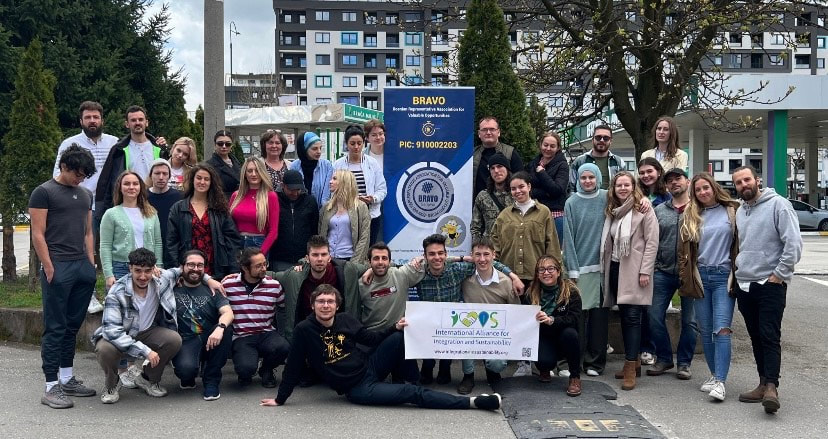
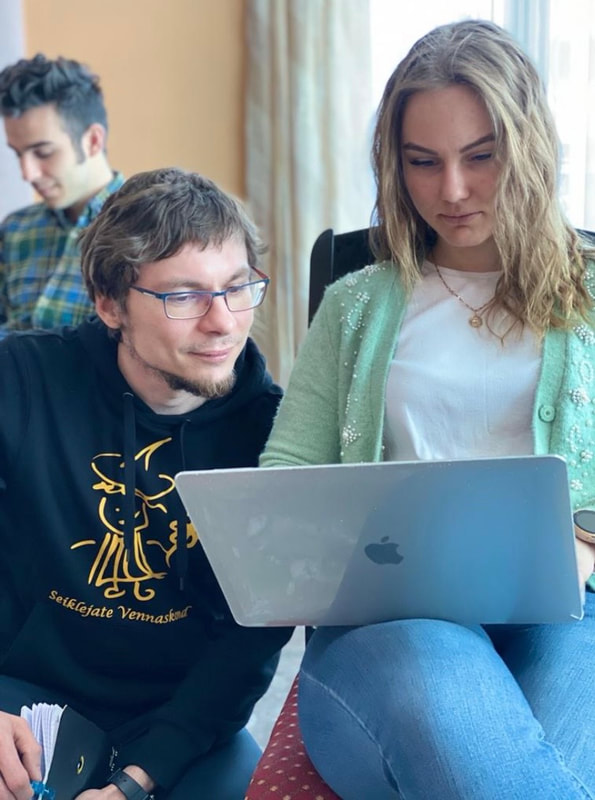
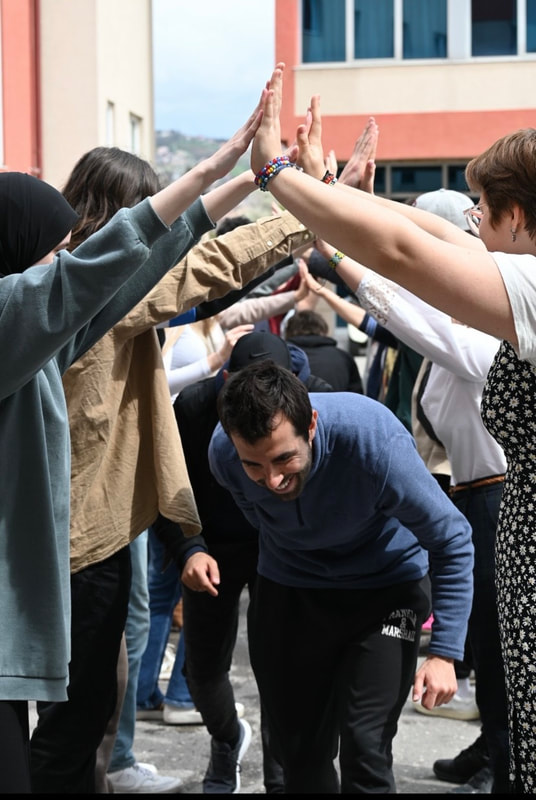
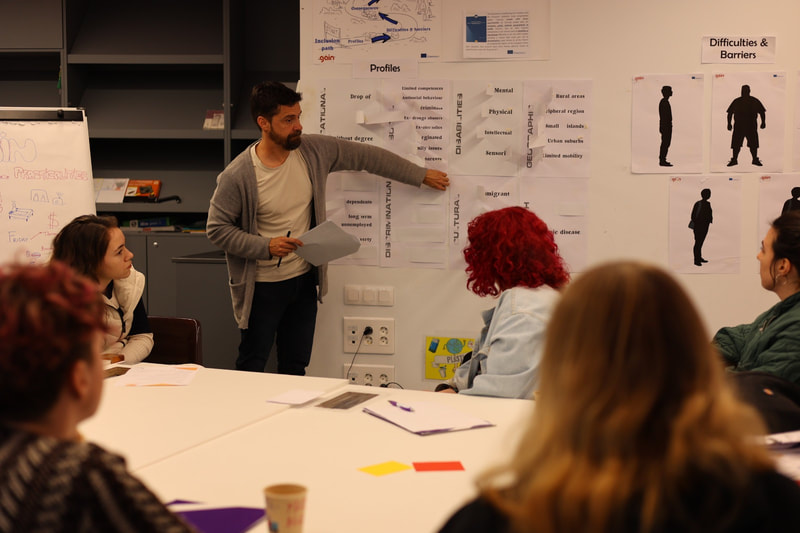
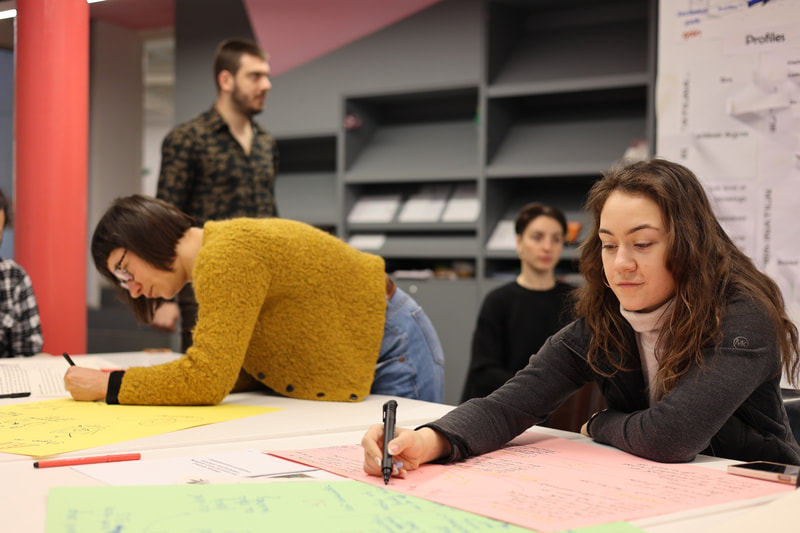
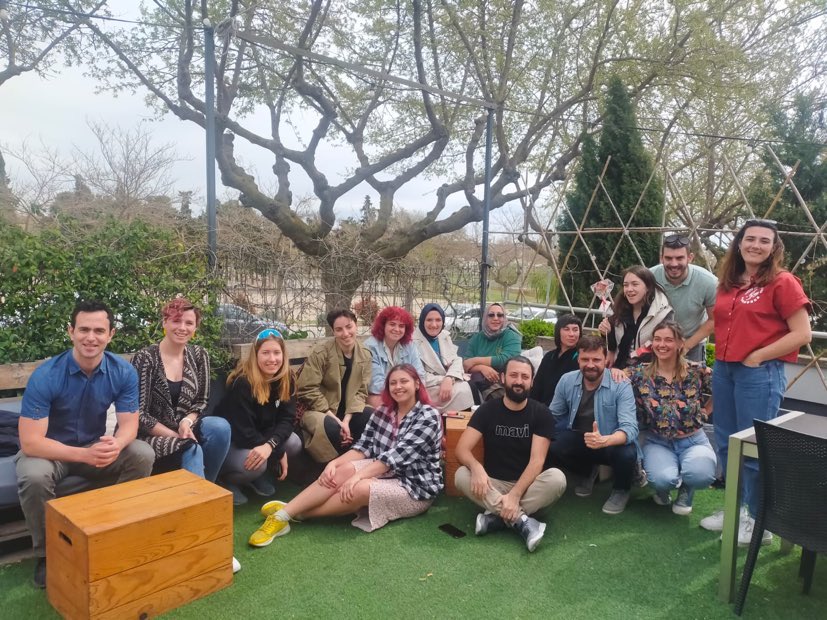
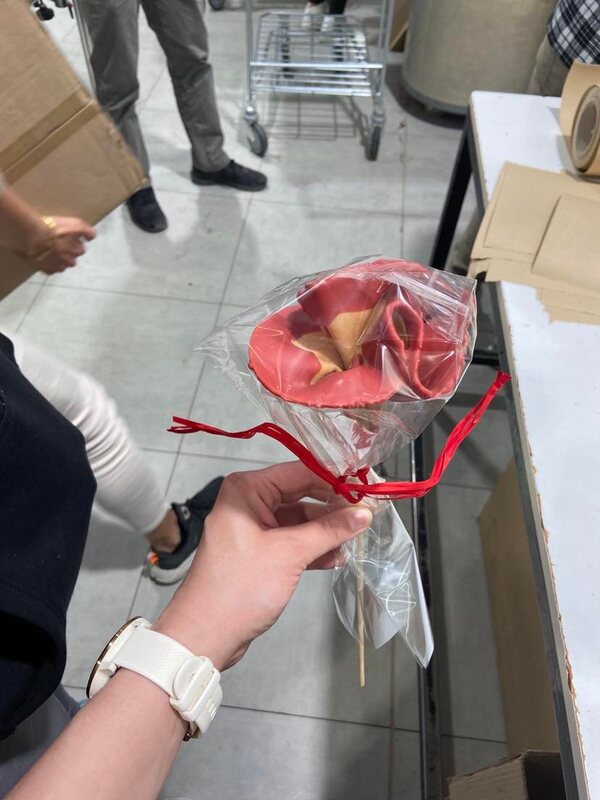
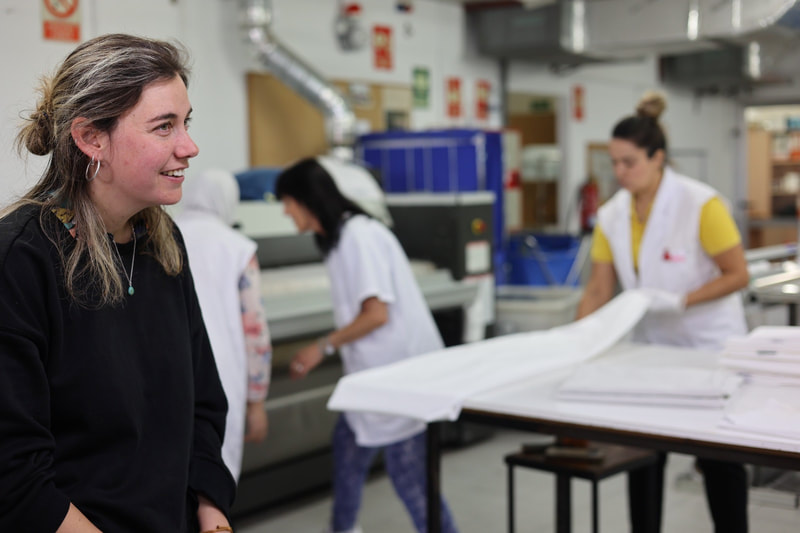
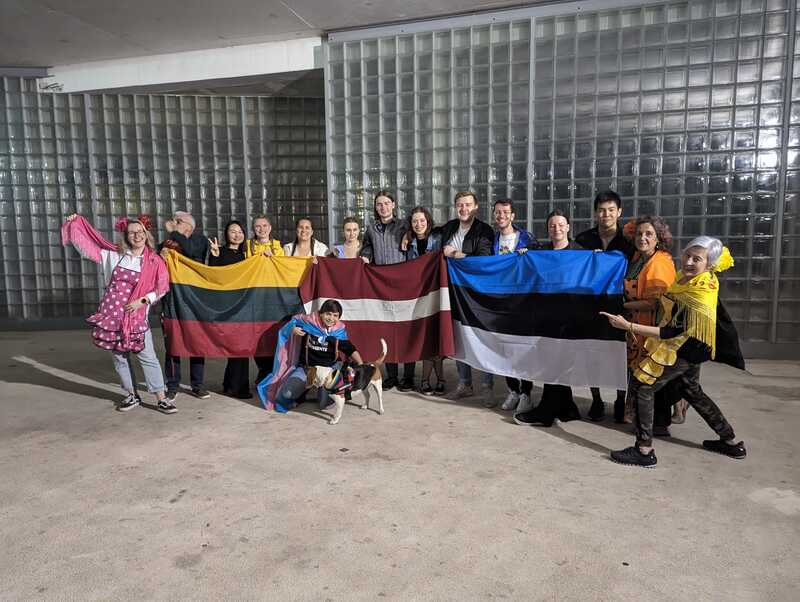
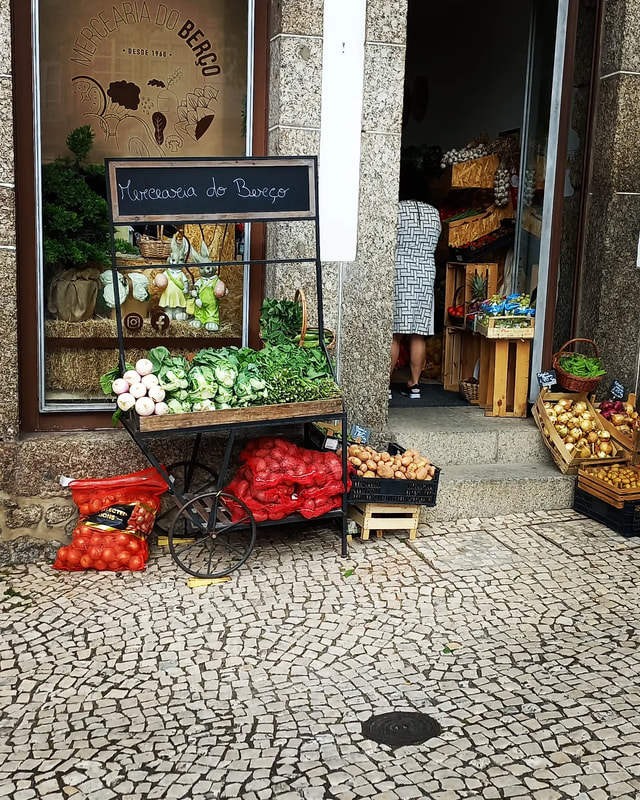
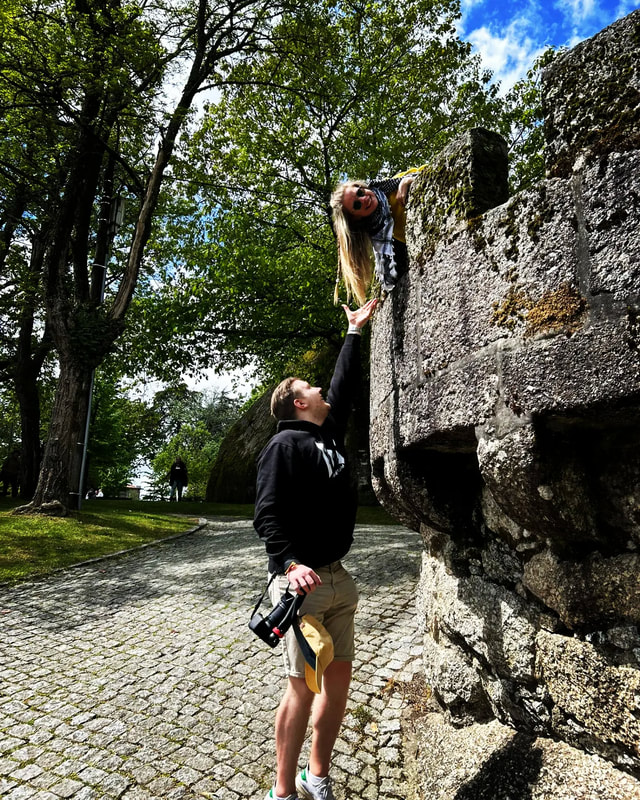
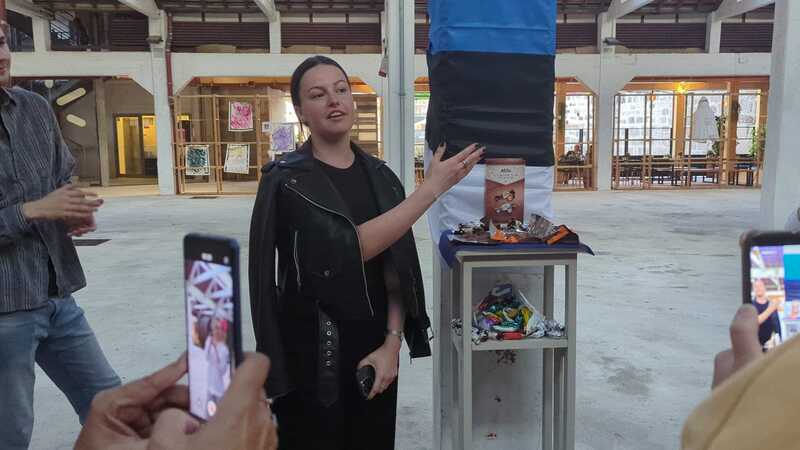
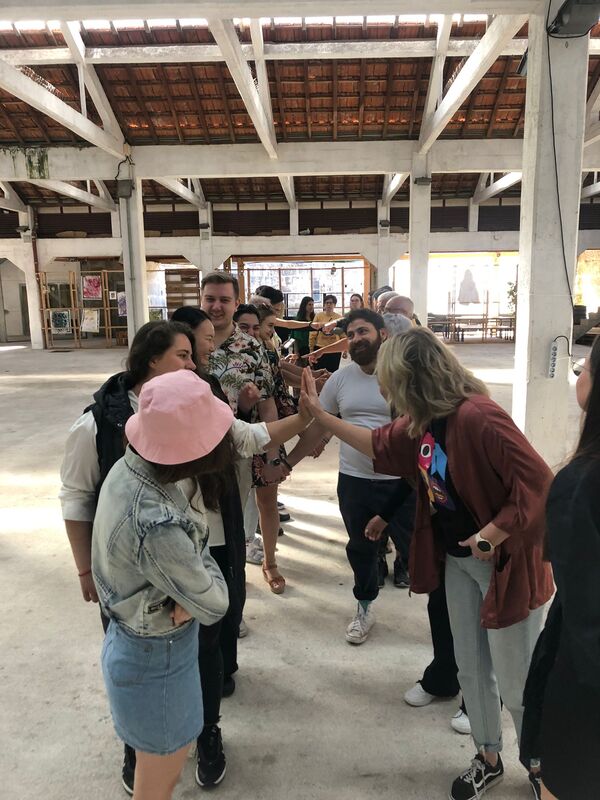
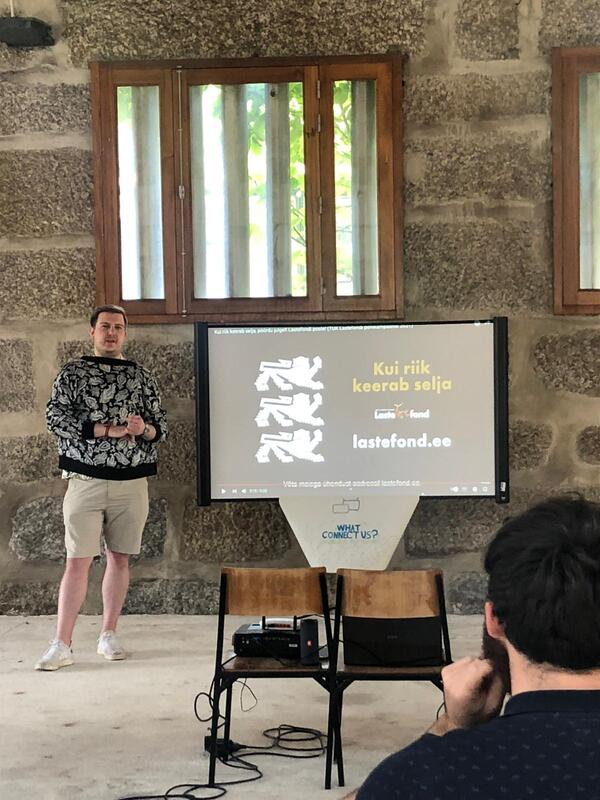
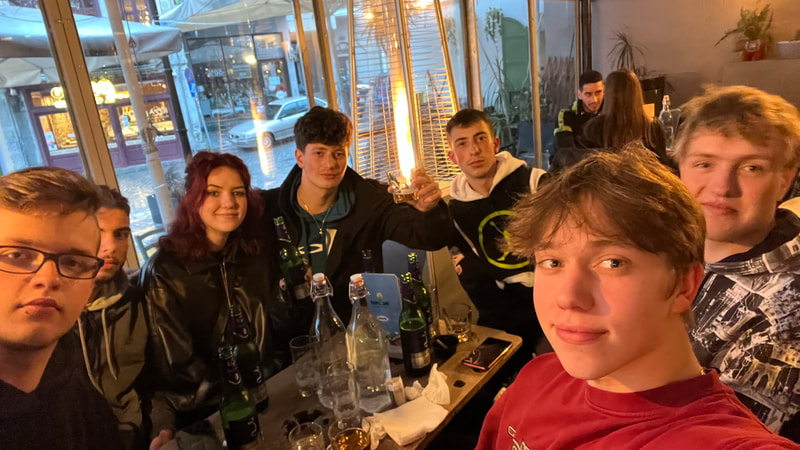
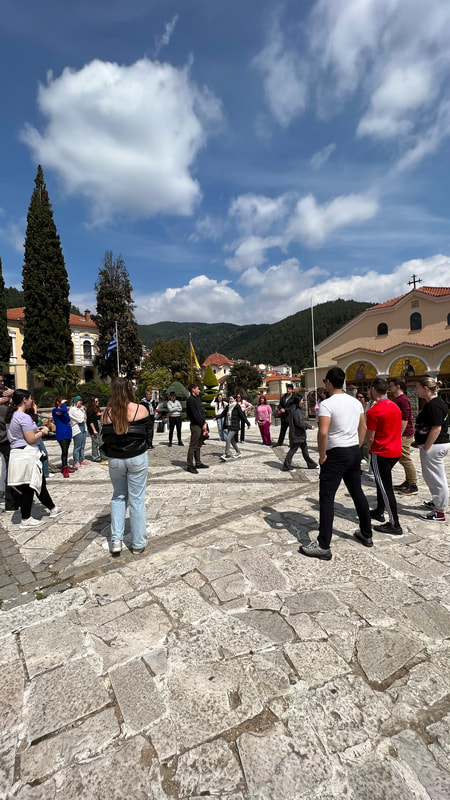
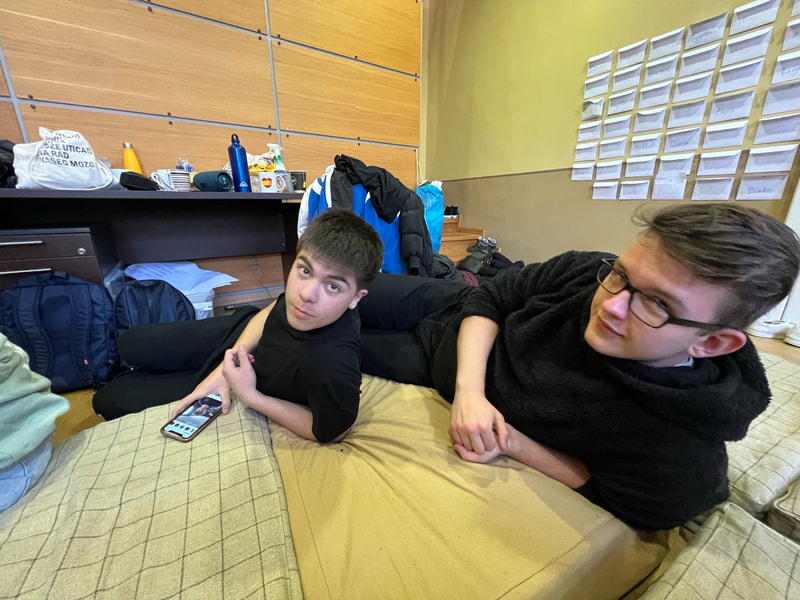
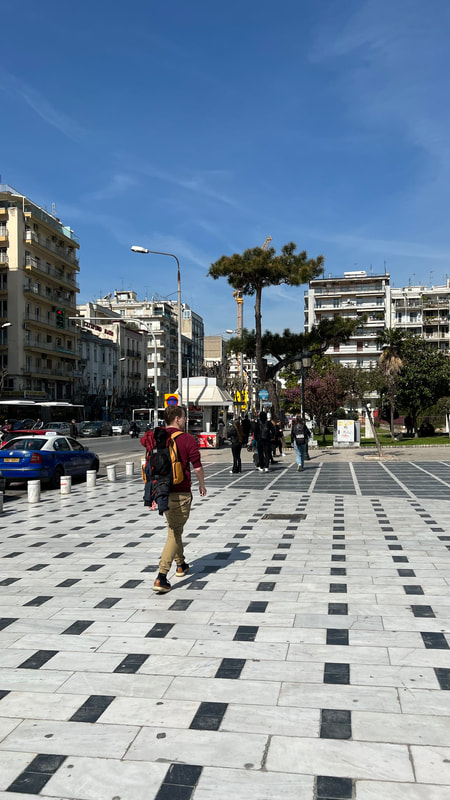
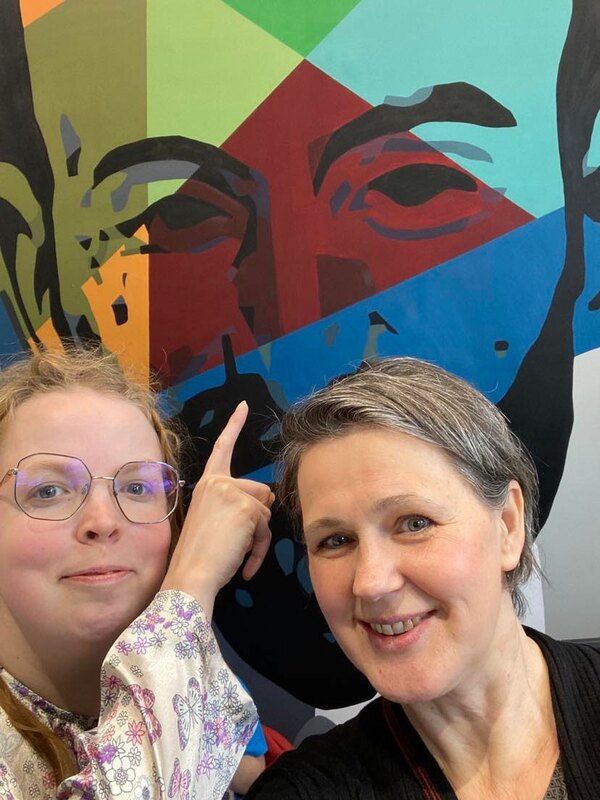
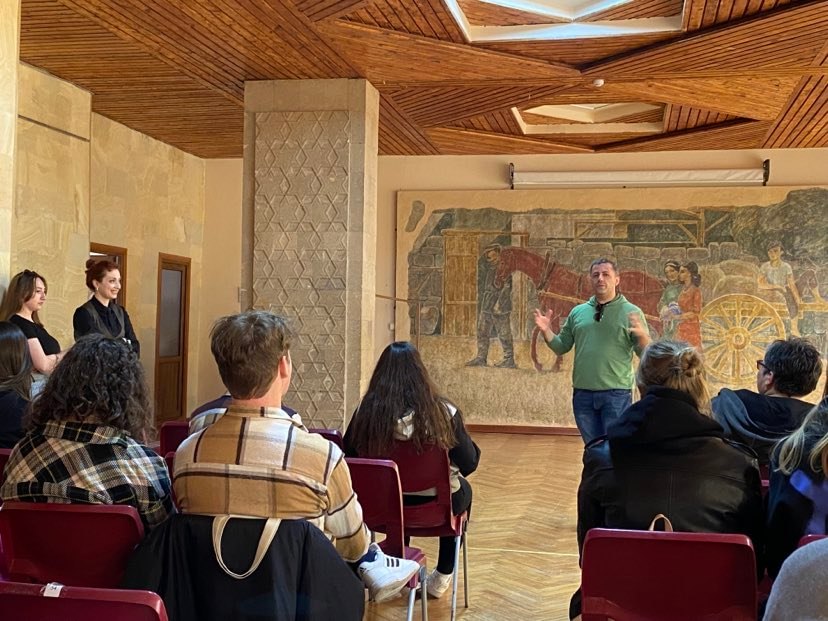
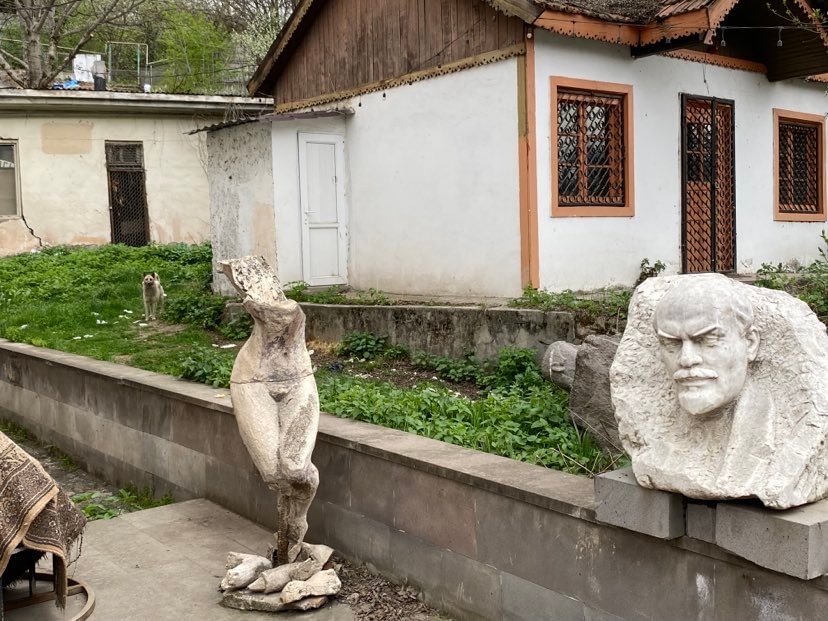
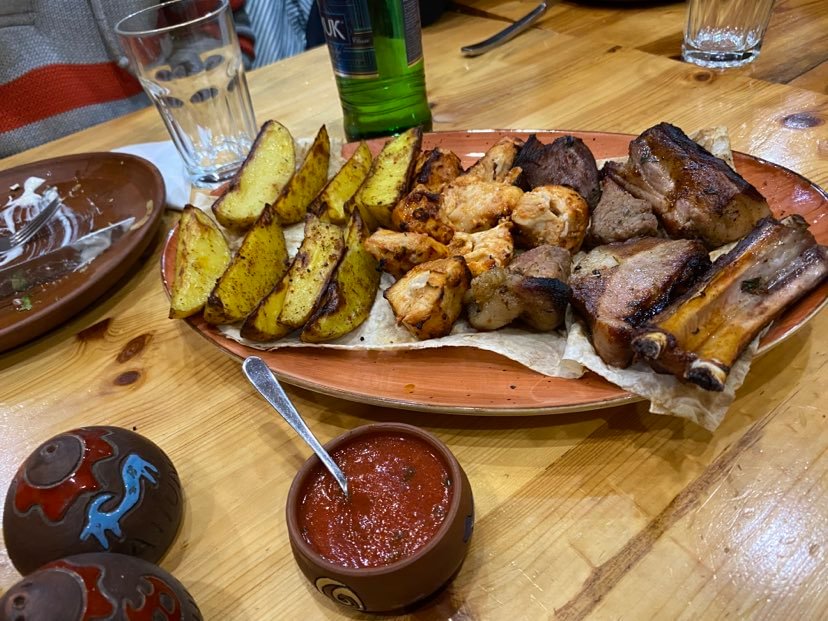
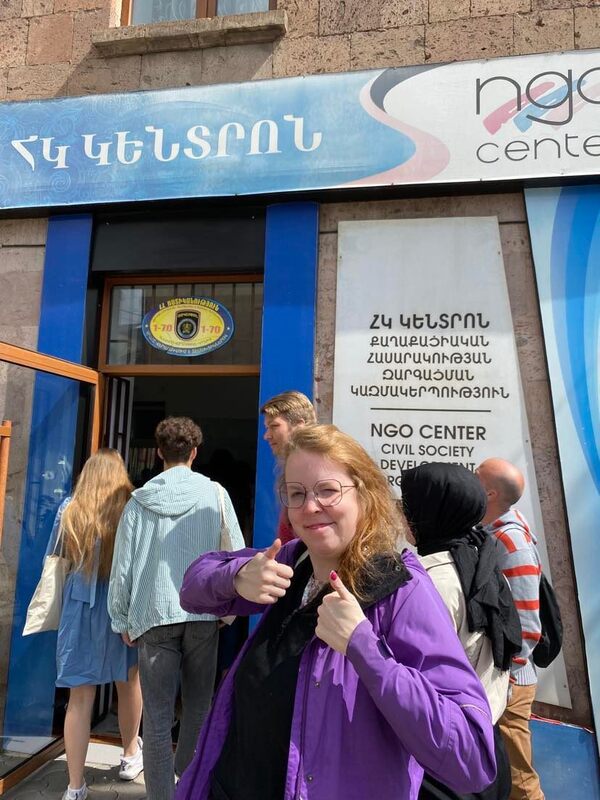
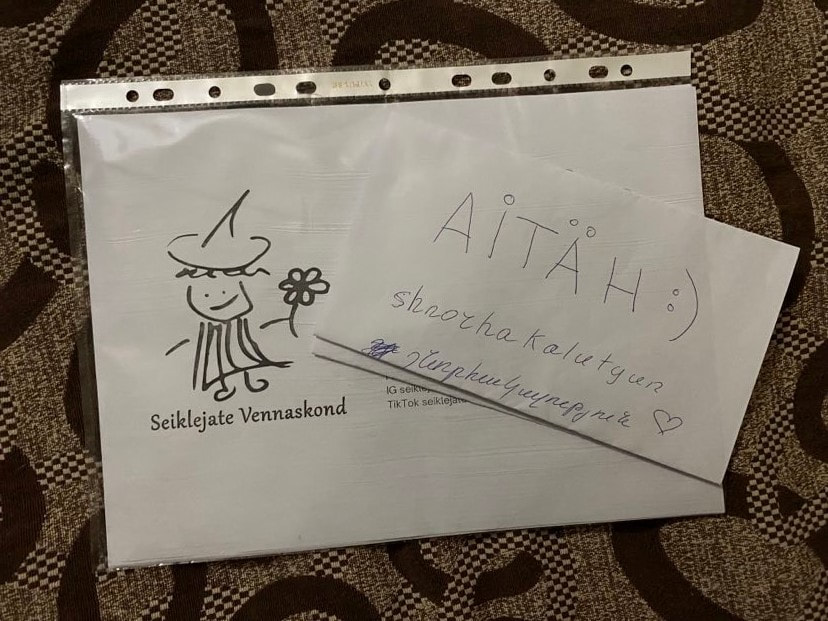
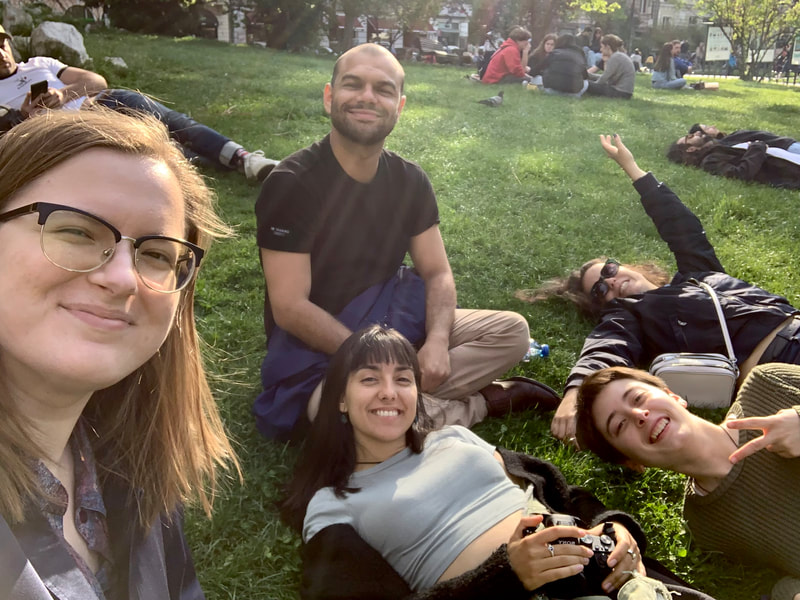
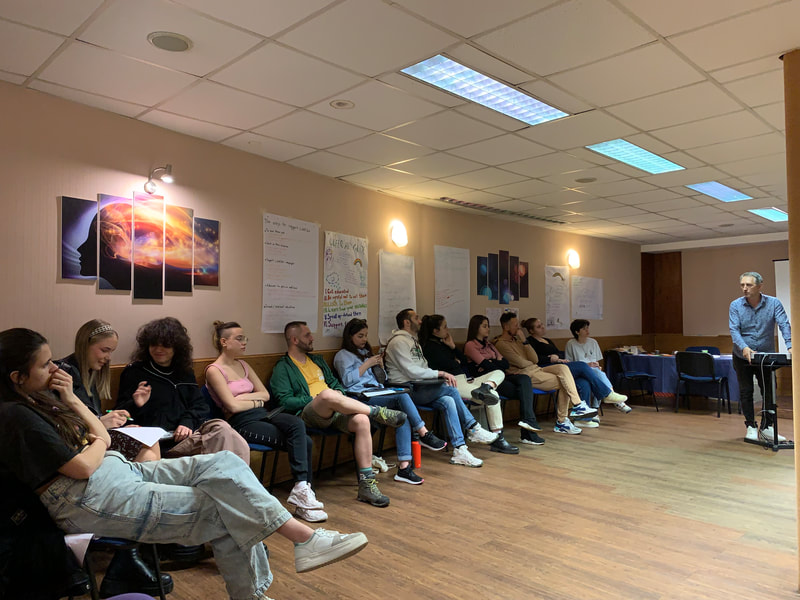
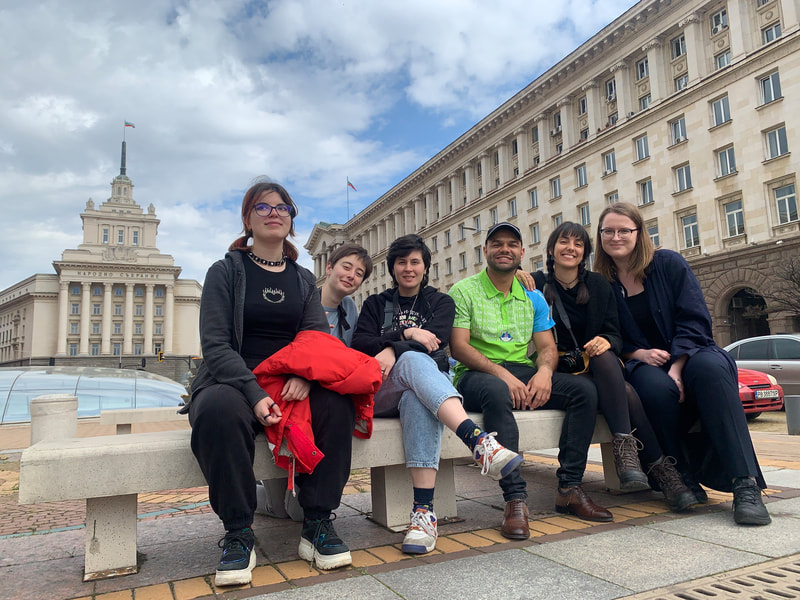
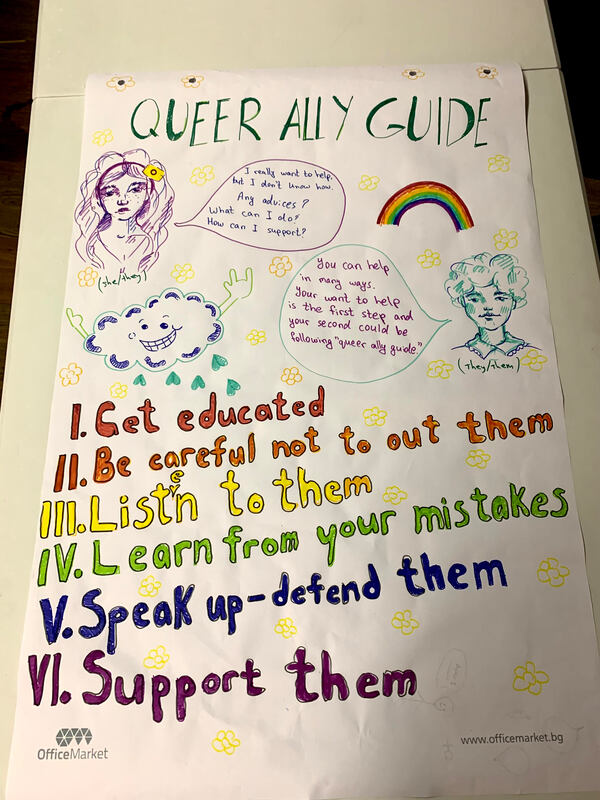
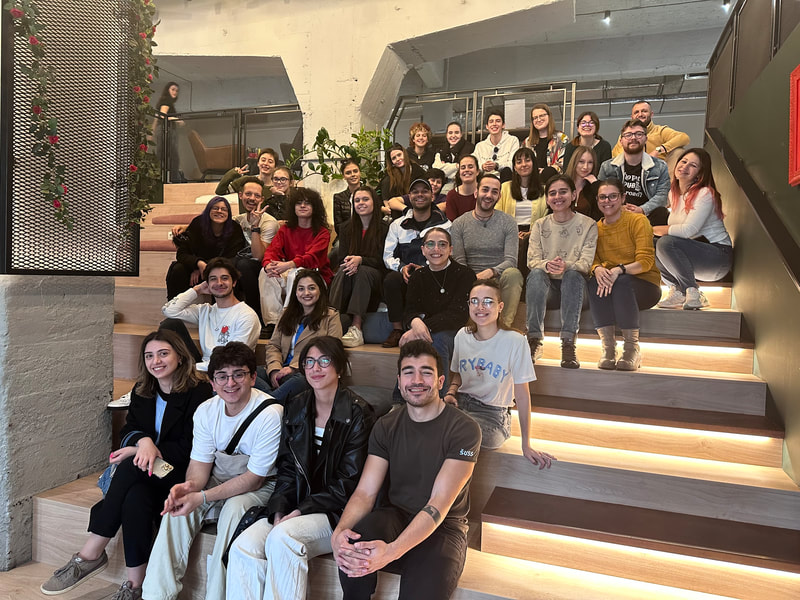
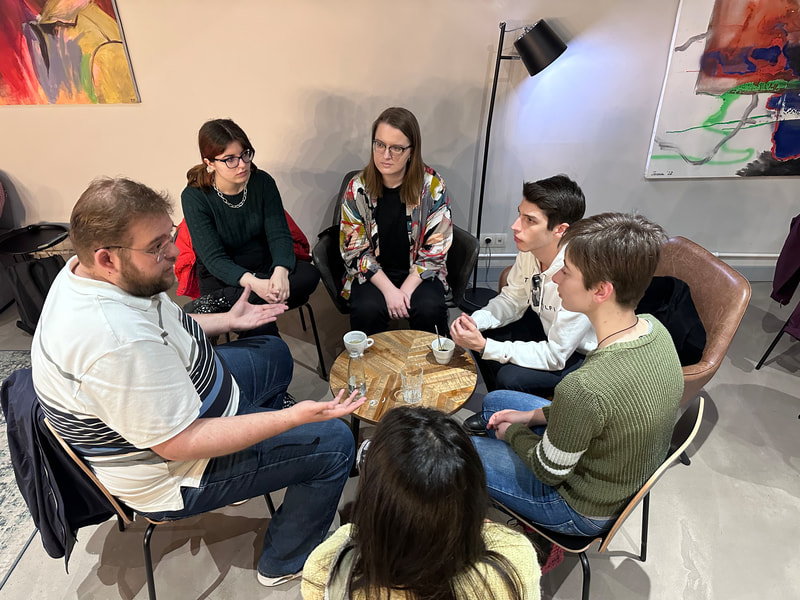
 RSS Feed
RSS Feed
